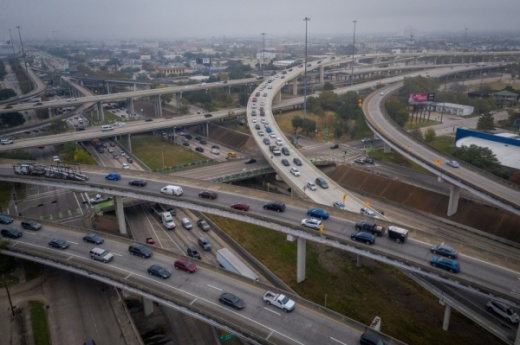Updated post: March 25
A new pilot program aimed at reducing wait times for freeway crash towing will begin June 1. Houston City Council voted to allow the program, funded by the Houston Galveston Area Council, to run through the end of November.
Updated protocols will allow members of Houston Fire Department to call and send pictures and videos to an offsite police officer at the scene of a freeway accident. The police officer will be able to remotely approve the towing of vehicles involved in freeway crashes instead of arriving on scene. If the plan works smoothly, Houston Police and Fire Department officials believe it will reduce towing wait times from several hours to 10 minutes.
Original post: March 4
Houston motorists have reported waiting up to an hour to remove their vehicles from the site of a freeway crash, said Lt. Isaac Dupelchain of the Houston Police Vehicular Crimes Unit.
“We’re dispatched to 10,000 crashes a year, and many of them are minor, but city ordinances require HPD to order vehicle removal from the freeway,” he said.
However, a recently proposed pilot program aims to reduce a bottleneck that contributes to these wait times, Dupelchain told the Houston City Council Public Safety Committee on March 4.
When a 911 call is received for a traffic accident, typically the Houston Fire Department arrives at the scene first and waits for HPD to arrive and clear the incident.
Under the proposed program, which would be funded by the Houston-Galveston Area Council, firefighters would be issued cell phones to take photos and videos of a crash scene. If there are no major injuries or suspicion of intoxicated drivers, the firefighter will share photo and video with an overtime police officer staffed at TranStar, the Houston area's freeway monitoring system, who will issue clearance to tow the vehicle without sending an HPD patrol to the scene. They will also check to ensure no drivers involved have outstanding warrants.
Ideally, the program aims to reduce wait times to 10 minutes, Dupelchain said.
“One of our first concerns as mentioned is the amount of time our apparatus are on scene while awaiting HPD,” Assistant Fire Chief Michael Mere said. “The number of fire trucks that have been totaled or severely damaged while waiting at a freeway accident ... that adds more stress to fire department and to the city.”
If approved by Houston City Council, which could happen next month, the program will begin with a one-month study to establish a baseline of response time data and then advance to a six-month pilot period through the end of the year. Afterwards, the results will be studied and presented to council.
HGAC estimates the pilot program will cost $210,000, none of which will be required of the city. If the city seeks to adopt the program after the pilot period, a cost-savings analysis will be conducted.
The pilot area would only include freeways within Houston city limits.





